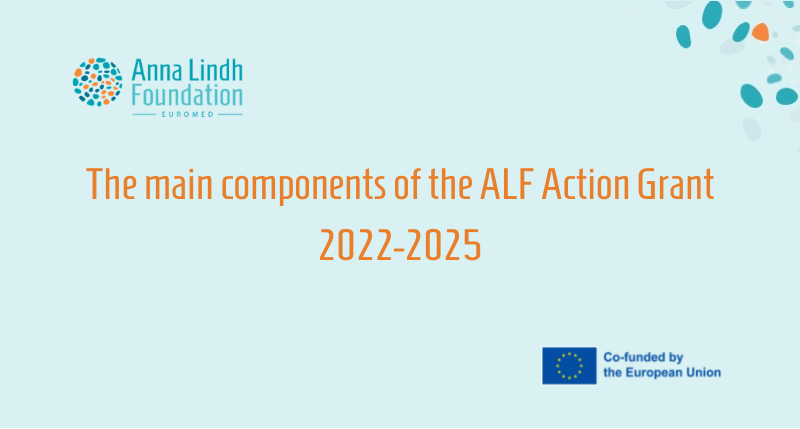
Over the past six months, the Anna Lindh Foundation together with its three institutional bodies: the Board of Governors (BoG), Heads of National Networks (HoNs) and Advisory Council (AC), have been working intensively on developing the Foundation’s Multi-annual Work Programme 2022 - 2025, in view of signing the new Action Grant 2022 - 2025 with the European Commission.
The fundamentals of the programming 2022 - 2025 are based on the strategic orientations and principles shared and discussed with the BoG, which were also widely debated during the HoNs meetings to enrich the strategic orientations and illustrate operational aspects. Those principles have also been the object of a productive exchange with the recently renewed AC in the meetings organised virtually and in Alexandria.
The new ALF programming structure is organised in six Working Packages (WPs) encompassing ten groups of activities:
WP.1: Civil society network engagement aims at activating and engaging the National Networks to develop intercultural dialogue actions at national and regional levels with a customised approach to factor in the specific realities in the field, including invigoration encounters, civil society exchanges and Networks Engagement Scheme.
WP.2: Mobility and training complements the first WP and aims to empower the grass-root Network members by providing regional focus on two specific priorities: Mobility and Enhancing Capacities, to promote collaborative initiatives among intercultural actors involving diverse types of know-how and profiles with a peer-to-peer approach.
WP.3: Academia and local authorities’ synergies aims at initiating and promoting collaborative work between civil society organisations and the academic community as well as local administrations through cultural initiatives and intercultural actions to create dynamics to advocate for intercultural dialogue and outreach to broader audiences.
WP.4: Governments and EU institutions synergies aims at encouraging cooperation between policy makers and practitioners to enhance Intercultural Public Policies and related aspects to organise multi-stakeholders exchanges around intercultural themes.
WP.5: Visibility and dissemination aims at streamlining communication and visibility activities throughout all the other WPs through the ALF website and the Intercultural Dialogue Resources Centre, the social media channels and the monthly e-newsletter.
WP.6: Quality control, monitoring and evaluation aims at introducing a quality control component to ensure progressive performance and constant improvement of ALF programming to better ensure the impact of its Action.